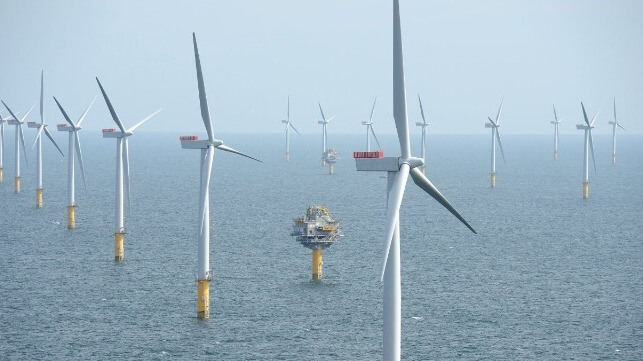Equinor Unveils $23B Offshore Wind Plan

Norwegian state-owned oil major Equinor intends to invest $23 billion in offshore wind projects in the medium term as it implements an ambitious energy transition plan, hoping to achieve carbon-neutrality by 2050.
The plan, which will be submitted for an advisory vote by shareholders at a meeting next month, is aimed at ensuring the company reduces net group-wide operated emissions (not including combustion of its products) by 50 percent by 2030, in line with the Paris Agreement.
“Our energy transition plan is based on actions. We believe it demonstrates that we have the right strategy, ambition level, capabilities and track record to be a leading company in the energy transition while ensuring long-term shareholder value creation and competitiveness,” said Anders Opedal, Equinor CEO.
In the plan, Equinor is committing to $23 billion in capital expenditure for offshore wind projects over the next five years. Its overall aim is to increase installed capacity by 12 GW to 16 GW by 2030, five years earlier than previously announced.
The capital allocation to renewables and other low-carbon solutions will increase towards 2030. Equinor plans for these expenditures to reach 30 percent of gross capex by 2025 and 50 percent by 2030, up from a share of four percent in 2020.
Equinor currently has offshore wind capacity of 0.7 GW in its portfolio, but it is expanding quickly with projects like Dogger Bank and Empire Wind. It is also exploring opportunities in regions like Eastern Europe and East Asia, where there is potential for renewables to displace coal from the electricity mix.
Apart from renewables, the company is investing in low carbon solutions with a focus on blue hydrogen and carbon capture and storage (CCS). On CCS, its target is to develop a CO? transport and storage capacity of 5-10 million tonnes by 2030 and 15-30 million tonnes by 2035.
In the energy transition plan, the company also aims to supply hydrogen to major industrial clusters like steel and cement and transport sectors such as heavy duty trucking, shipping and aviation by 2035, aiming at a 10 percent market share of clean hydrogen in Europe. These ambitions will be realized through a portfolio of hydrogen projects centerd in industrial clusters in Norway, Northwest continental Europe, the UK and the U.S.
This will also include developing replacement fuels for the maritime sector, as Equinor has extensive maritime activity around the world, including around 175 vessels on charter. Equinor’s goal is halving its maritime emissions in Norway by 2030 and globally by 2050.

that matters most
Get the latest maritime news delivered to your inbox daily.
As a supplier of fuel to the maritime sector, the company plans to escalate production and use of alternative fuels, including LNG and ammonia.
Equinor also aims to minimize emissions during the oil and gas production process, which plays a part in the overall lifecycle emissions of fossil-fuel extraction and utilization. Since 2015, the company has reduced upstream carbon intensity by around 30 percent, bringing it below half of the current industry average, and it has set a target to keep it under eight kilos of CO?/boe towards 2025 and around six kilos CO?/boe by 2030.
